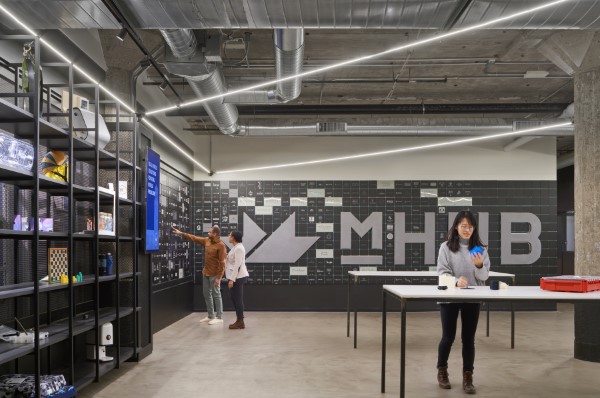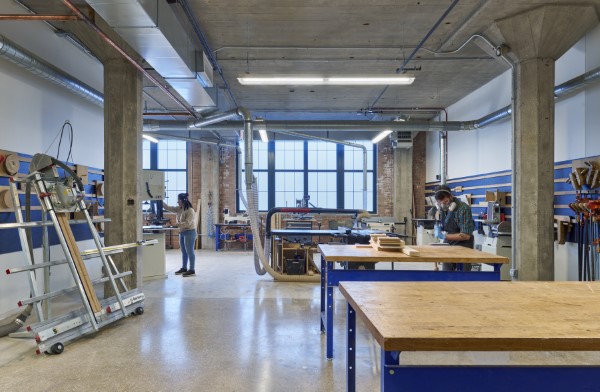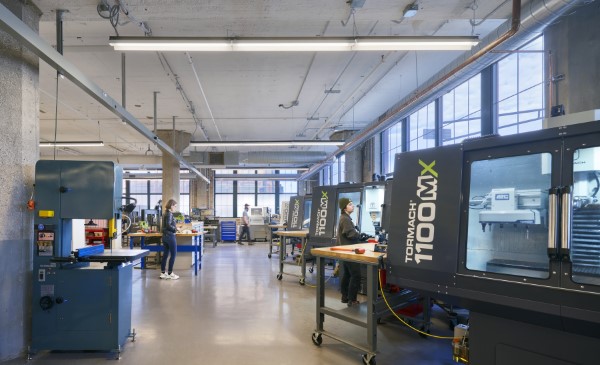If there was ever a time to allow a new idea to bloom in Illinois, it is now. Planting roots in Illinois comes with ease as the state approaches its peak season to harvest fresh innovations.
It doesn’t require a green thumb. New programming is helping small and mid-sized businesses rise high.
The arrival of the new $3 million Illinois Innovation Voucher Program (IIV) in March 2024 aims to not only provide the space and resources for burgeoning ideas to come to fruition, but an avenue for small and medium-sized enterprises to collaborate with higher education. The IIV program, a partnership between the Illinois Department of Commerce and Economic Opportunity (DCEO) and the Illinois Science and Technology Coalition, will provide up to $75,000 in grant funding for costs associated with research engagement.
“With top research universities, tech incubators and accelerators, and two national labs, cutting-edge research is happening in every corner of the state,” said DCEO Director Kristin Richards. “New grant programs like Innovation Vouchers are encouraging collaborations between universities and Illinois corporations to promote groundbreaking research and innovation. Looking ahead, the State will continue to invest in research and innovation, including the half-billion-dollar quantum campus that will make Illinois an even more desirable destination for technology companies, entrepreneurs and investments.”
The program is not catered to a single industry, nor does each project have to follow the same development path. While some may use the voucher to utilize lab or research facilities at a higher education institution, others may allow for university professors to run their research project to gather the needed technical information. Regardless of whether one is looking to get started or move into testing proof of concept, this initiative is designed to drive innovation forward.
Expenses covered include sharing of technologies, knowledge, facilities and equipment; salaries for research and scientific expertise; new product development; product commercialization; prototyping, piloting, testing and product validation; business model and service development; innovation and technology audits; implementation of new technology; and acquiring metrology and standardization.
To qualify, the small to mid-sized business with fewer than 500 employees must be based in Illinois or employ a minimum of 100 full-time Illinois residents. If there are plans to engage with a university or college, the institution has to be an Illinois-based non-profit higher education institution. Each selected business must remain in the state for the entirety of its research engagement
In covering the basics that tend to produce the biggest obstacles, eligible companies focus on perfecting their project-supported by a network of expertise. Paired with the Small Business Innovation Research/Small Business Technology Transfer Matching Grant Program for up to $50,000 in-state matching funds toward federal R&D in partnership with a research institution, moving an idea into commercialization comes with less stress.
“The level of collaboration and intensity of focus on attracting innovators is like never before.”
— Kristin Richards, DCEO Director
“The level of collaboration and intensity of focus on attracting innovators is like never before,” said Richards. “DCEO puts resources into funding the Manufacturing Training Academies, Climatic Center for Innovation and Research, Wet Labs Capital Grants, Innovation Vouchers, CZ Biohub, iFAB, mHUB, CQE, the DARPA Quantum Proving Ground and many others because we know that science and engineering can lead to breakthroughs that result in industrial and commercial uses that benefit all of us for generations to come. The State invests in emerging industries that have the potential to transform Illinois’ economy.”
A Hotspot For New Development
Seven years since the hardtech and manufacturing innovation center first arrived, mHUB has been vital to the launch of over 1,600 products, investment into 46 hardtech start-ups, raising more than $1.89 billion in capital and creating over 5,500 new jobs in Illinois.
The grand opening of mHUB’s new 80,000-sq.-ft. innovation center and HQ took place in December 2023. In comparison to its former site, located just 1.5 miles away, this revitalized former manufacturing facility in Chicago’s Kinzie Industrial Corridor supplies 50% more usable space. The two-acre site allowed mHUB to include additional specialized equipment, five larger private wet labs and expanded electronics and testing space within its prototyping labs.

Aside from supporting new entrepreneurs, mHUB has become a hotspot for industry collaboration for sustainable manufacturing, climate and energy technologies and medical technologies. More than 275 companies, including Siemens and Gilero, have set up shop in the new HQ to pursue various manufacturing-focused projects.
The U.S. Department of Energy joined in the action by awarding mHUB with $100,000 in funding toward the establishment of the Clean Tech Innovation Network in March 2024 and returning a week later with $150,000 toward the development of a Climate & Energy Pilot Launchpad Program.
A partnership among mHUB, the University of Chicago and Argonne National Laboratory created the Clean Technology Economy Coalition as a result of potential EDA funding through the $1 billion Build Back Better Regional Challenge in 2021. Through the Coalition, an approximately $189 million strategy was developed with a goal of making Illinois a leader in grid technology, innovation, production and deployment.
“A part of that strategy was driving innovation capacity,” says mHUB Chief of Staff Allison Winstel. “The Clean Tech Innovation Network will do that by connecting a network of innovation, entrepreneurship and job creation in the clean tech sector.”
In partnership with the Greater Englewood Chamber of Commerce (GCC), the Clean Tech Innovation Network has now entered its Progress Phase, having submitted a proposal for an additional $100,000 in July 2024. As of now, mHUB and GCC are designing the initial versions of clean energy programming for startups and workforce training. So far, a Clean Energy Innovation and Manufacturing Workshop series has launched and will take place over the next year. Meanwhile, GCC has begun recruitment for its first solar training program.
Goals set for the first year of the Clean Tech Innovation Network included supporting 10 clean energy startups, supporting 40 returning citizens and aiding the development of six new clean energy businesses. The partnership so far has supported six clean energy startups, 10 returning citizens and four new businesses in less than six months.

“A key next step will be bringing other partners to the table,” said Winstel. “We envision this like a tiered network, where no matter where someone is in a community they can get access to the resources to explore careers and entrepreneurship in the clean tech sector in Chicago.”
The Climate & Energy Pilot Launchpad Program builds upon years of accelerator cohorts mHUB has been focused on, now with the added assistance of industry partner Nicor Gas. Winstel states that in working with climate and energy startups have the biggest support gap comes in the piloting stage, rather than early stage support or funding amassed in later stages.
“There’s a gap in access to industry and access to funding and support when they hit that pilot and demonstration stage, which for high-tech companies like climate and energy is absolutely critical in order to get through the valley of death,” said Winstel.
As companies reach this milestone, this program is designed to provide startups with technical assistance, one-on-one mentorship and access to mHUB’s network of industry partners. Initially, mHUB aims to guide three to six startups through their pilot process. In the fall of 2024, mHUB plans to apply for a $1 million Cooperative Agreement Grant from the DOE that would secure program funding for another three years, allowing it to scale the program up to twice a year and accept more startups per round.
“I want to see the state capture this opportunity to be an innovation cluster and a manufacturing cluster for the critical clean energy and grid technologies,” said Winstel. “Where mHUB sees this big opportunity is Illinois carving out its place in the clean energy sector, leveraging our strong manufacturing base, our national labs, universities and the innovation ecosystem to become a global leader in development and production of these technologies.”
In the meantime, innovative activity persists in Chicago. In July 2024, mHUB announced the launch of its third MedTech cohort alongside industry partners Baxter International Inc., Endeavor Health and GE HealthCare. The six-month program provides startups with mentorship, lab access, legal assistance, industry insights, pilot opportunities and $200,000 in cash for prototyping and commercialization measures.

